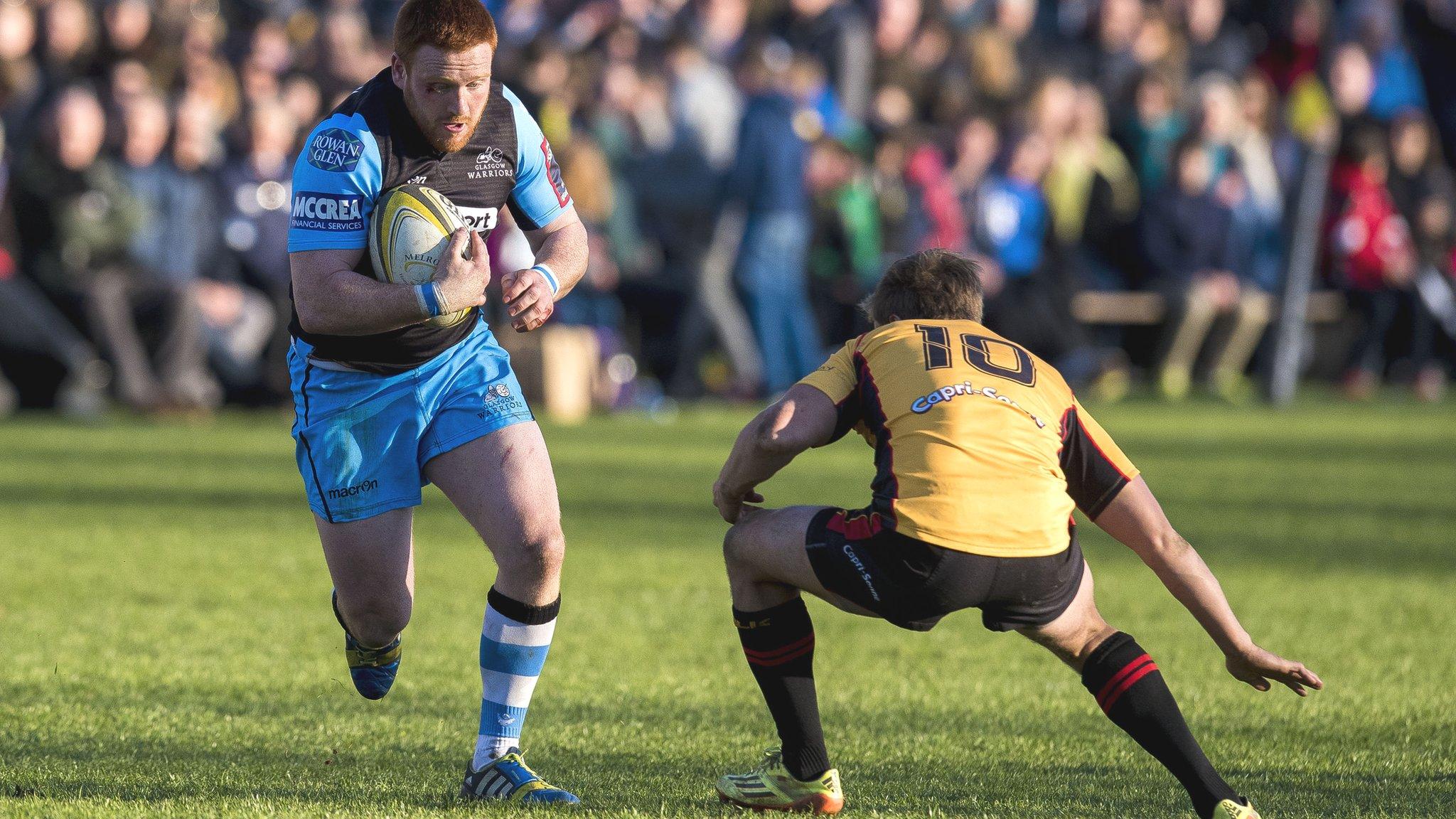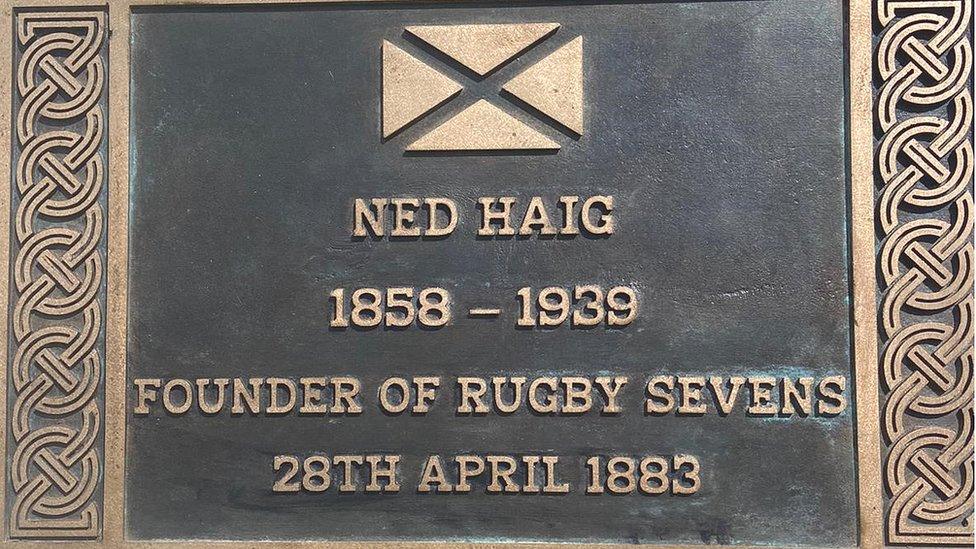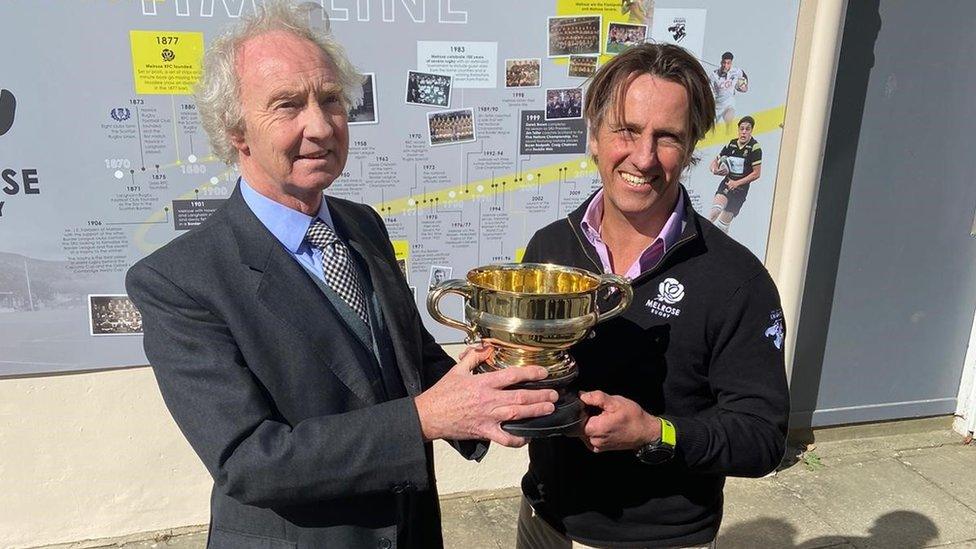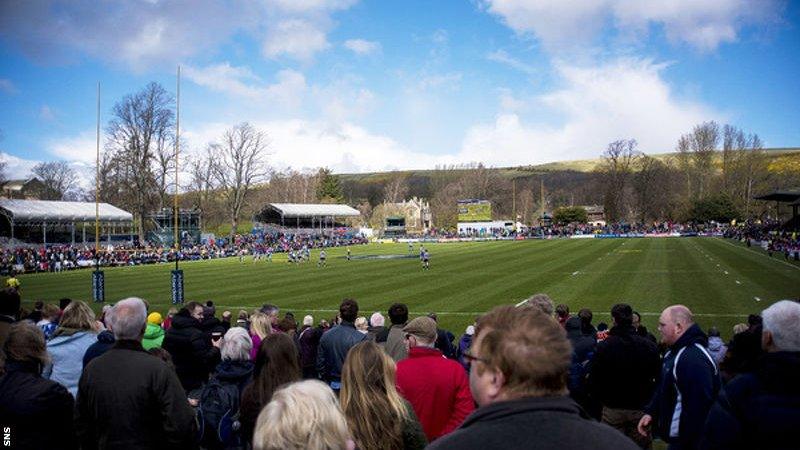Ned Haig: Founder of rugby sevens honoured in Melrose
- Published

Ned Haig is credited as the founder of the game of rugby sevens in Melrose
A plaque honouring the founder of rugby sevens has been unveiled in the Scottish Borders.
Ned Haig is credited with coming up with the idea for the sport as a way of fundraising for the club in Melrose.
The Duke of Buccleuch carried out the unveiling ahead of the return of the Melrose Sevens tournament which has not been held since 2019 due to Covid.
He said he felt "really privileged" to be involved in honouring the founder of the game.

A plaque now honours Haig's role in Melrose
In 1883, Haig suggested hosting a tournament as part of a sports day to raise funds for Melrose Rugby Club.
As it would not be possible to play several rugby games in one afternoon with a full squad of 15, teams for the tournament were reduced to seven players and the match time from 80 minutes to 15 minutes.
The game of rugby sevens was born with the first tournament taking place on 28 April that year.
Historic Environment Scotland gave its approval for the plaque to be put in place.
"Through our plaque scheme, we want to highlight the important link between people and places, connecting these exceptional individuals to the built environment that shaped their life and work," director of heritage Barbara Cummins said.

The Duke of Buccleuch carried out the unveiling and donated the player of the tournament trophy
Tournament organiser Phil Morris said: "It's wonderful to see the Duke of Buccleuch supporting the Melrose Sevens and honouring the founder of this amazing game of rugby sevens.
"We're also delighted and very grateful to the duke for his kind donation of the player of the tournament trophy."
'Remarkable man'
Douglas Brown, president of Melrose Rugby, said the club was pleased to see Haig honoured.
"By all accounts, he was a remarkable man and a true sporting visionary," he said.
"From those humble beginnings in 1883, Haig's original vision has grown remarkably in popularity over the years and created one of the most exciting of team sports.
"Rugby sevens is now both a Commonwealth Games and Olympic sport."
He said the club was proud of its link to Haig.
"We'll continue to promote the abbreviated game in tribute to him and those early rugby pioneers," he added.
Related topics
- Attribution
- Published30 June 2020
